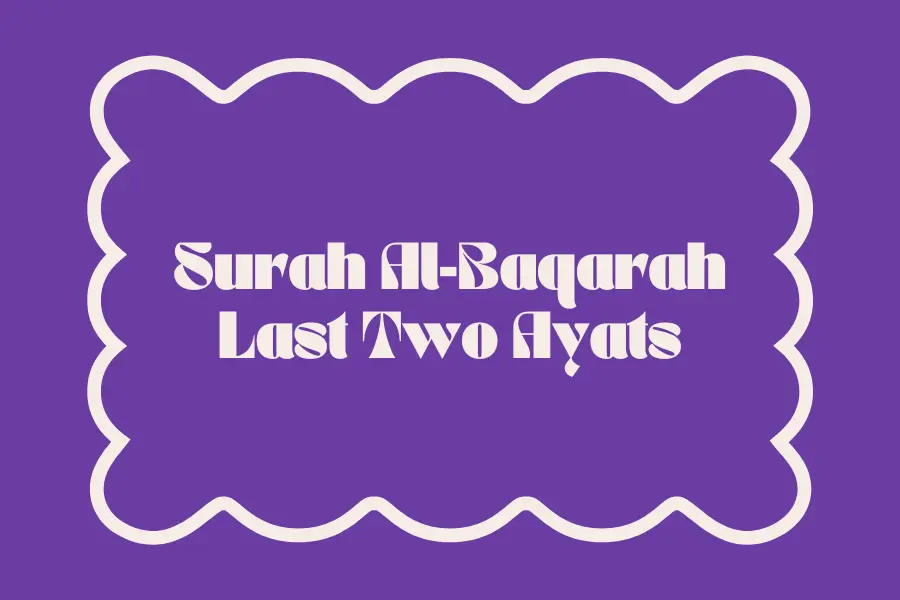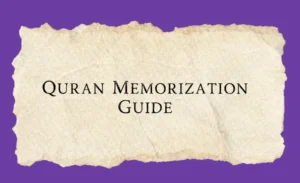Surah Al-Baqarah, the second chapter of the Qur’an, is also the longest Surah with 286 verses, revealed in Madinah. Its name, “Al-Baqarah” (The Cow), comes from the story of the cow mentioned in verses 67–73. This Surah covers a wide range of themes, including faith (iman), laws, guidance for personal and social life, patience, charity, jihad, family matters, and spiritual protection. The Prophet Muhammad ﷺ emphasized its importance, saying:
Arabic: اقْرَؤُوا سُورَةَ الْبَقَرَةِ فَإِنَّ أَخْذَهَا بَرَكَةٌ، وَتَرْكَهَا حَسْرَةٌ، وَلَا تَسْتَطِيعُهَا الْبَطَلَةُ
Transliteration:
Iqra’ū sūrata al-Baqarah, fa’inna akhdhahā barakah, wa tarkahā ḥasrah, wa lā tastaṭī‘uhā al-baṭalah.
Translation:
Recite Surah Al-Baqarah, for taking recourse to it is a blessing, abandoning it will be a cause of grief, and the false magicians cannot withstand it. (Sahih Muslim)
Among its many treasures, the last two ayat (verses 285–286) are considered the crown of this Surah. Revealed as a gift to the Prophet ﷺ during the Night Journey (Isra and Mi’raj), these verses summarize the essence of belief, submission, forgiveness, and Allah’s mercy. They are also unique in that their recitation at night provides spiritual sufficiency and protection. Revealed in Madinah, these ayat summarize the essence of faith, obedience, accountability, and Allah’s mercy. They are among the most frequently recited verses in Islamic tradition due to their protection, blessings, and spiritual benefits.
According to authentic narrations, these two verses were given to the Prophet ﷺ during the Night of Ascension (Isra and Mi’raj) and are considered a treasure from under the Throne of Allah.
Surah Al-Baqarah Last Two Ayat (Arabic, Transliteration, and Translation)
Let’s take a closer look at the last two ayahs of Surah Al-Baqarah (285–286) along with their Arabic text, transliteration, translation, and meaning. These verses carry deep spiritual significance and timeless guidance for every believer.
Verse 285 – Surah Al-Baqarah
Arabic: آمَنَ الرَّسُولُ بِمَا أُنزِلَ إِلَيْهِ مِن رَّبِّهِ وَالْمُؤْمِنُونَ ۚ كُلٌّ آمَنَ بِاللَّهِ وَمَلَائِكَتِهِ وَكُتُبِهِ وَرُسُلِهِ لَا نُفَرِّقُ بَيْنَ أَحَدٍ مِّن رُّسُلِهِ ۚ وَقَالُوا سَمِعْنَا وَأَطَعْنَا ۖ غُفْرَانَكَ رَبَّنَا وَإِلَيْكَ الْمَصِيرُ
Transliteration:
Āmana ar-rasūlu bimā unzila ilayhi min rabbihi wal-mu’minūn, kullun āmana billāhi wa malā’ikatihi wa kutubihi wa rusulih, lā nufarriqu bayna aḥadin min rusulih, wa qālū sami‘nā wa aṭa‘nā ghufrānaka rabbanā wa ilayka al-maṣīr.
Translation (Sahih International):
The Messenger has believed in what was revealed to him from his Lord, and [so have] the believers. All of them have believed in Allah and His angels and His books and His messengers, [saying], “We make no distinction between any of His messengers.” And they say, “We hear and we obey. [Grant us] Your forgiveness, our Lord. And to You is the [final] destination.”
Verse 285 of Surah Al-Baqarah emphasizes the belief of the Messenger ﷺ and the believers in Allah, His angels, books, and messengers without making distinctions. It reflects true faith, obedience, and seeking Allah’s forgiveness, reminding us that the ultimate return is to Him.
Verse 286 – Surah Al-Baqarah
Arabic: لَا يُكَلِّفُ اللَّهُ نَفْسًا إِلَّا وُسْعَهَا ۚ لَهَا مَا كَسَبَتْ وَعَلَيْهَا مَا اكْتَسَبَتْ ۗ رَبَّنَا لَا تُؤَاخِذْنَا إِن نَّسِينَا أَوْ أَخْطَأْنَا ۚ رَبَّنَا وَلَا تَحْمِلْ عَلَيْنَا إِصْرًا كَمَا حَمَلْتَهُ عَلَى الَّذِينَ مِن قَبْلِنَا ۚ رَبَّنَا وَلَا تُحَمِّلْنَا مَا لَا طَاقَةَ لَنَا بِهِ ۖ وَاعْفُ عَنَّا وَاغْفِرْ لَنَا وَارْحَمْنَا ۚ أَنتَ مَوْلَانَا فَانصُرْنَا عَلَى الْقَوْمِ الْكَافِرِينَ
Transliteration:
Lā yukallifu-llāhu nafsan illā wus‘ahā, lahā mā kasabat wa ‘alayhā mā-ktasabat. Rabbanā lā tu’ākhidh-nā in nasīnā aw akhṭa’nā. Rabbanā wa lā taḥmil ‘alaynā iṣran kamā ḥamaltahū ‘ala-lladhīna min qablina. Rabbanā wa lā tuḥammilnā mā lā ṭāqata lanā bih. Wa‘fu ‘annā waghfir lanā warḥamnā. Anta mawlānā fa-nṣurnā ‘ala-l-qawmi-l-kāfirīn.
Translation (Sahih International):
Allah does not burden a soul beyond that it can bear. It will have [the consequence of] what [good] it has gained, and it will bear [the consequence of] what [evil] it has earned. “Our Lord, do not impose blame upon us if we forget or make a mistake. Our Lord, and lay not upon us a burden like that which You laid upon those before us. Our Lord, and burden us not with that which we have no ability to bear. And pardon us; and forgive us; and have mercy upon us. You are our protector, so give us victory over the disbelieving people.”
Verse 286 of Surah Al-Baqarah highlights Allah’s justice, mercy, and compassion, affirming that He does not burden a soul beyond its capacity. It is a profound supplication seeking forgiveness, relief from hardship, and divine support against challenges and disbelief.
Virtues of Surah Al-Baqarah Last Two Ayat
Now that we’ve seen the ayahs themselves, let’s explore the virtues and benefits of the last two verses of Surah Al-Baqarah. Numerous hadiths of the Prophet ﷺ highlight their special status, spiritual protection, and blessings for those who recite them.
1. Protection During the Night
Reciting the last two verses of Surah Al-Baqarah before sleeping serves as a shield of protection for the believer. As promised by the Prophet ﷺ, these ayahs are sufficient for spiritual safety, guidance, and peace throughout the night. The Prophet ﷺ said:
Arabic: مَنْ قَرَأَ بِالآيَتَيْنِ مِنْ آخِرِ سُورَةِ الْبَقَرَةِ فِي لَيْلَةٍ كَفَتَاهُ
Transliteration:
Man qara’a bil-āyatayn min ākhiri sūrat al-Baqarah fī laylatin kafatahu.
Translation:
Whoever recites the last two verses of Surah Al-Baqarah at night, they will suffice him. (Sahih al-Bukhari, Sahih Muslim)
2. A Gift from Allah’s Throne
The last two verses of Surah Al-Baqarah were revealed as a special gift to the Prophet ﷺ from beneath the Throne of Allah. This unique honor shows their immense value, unmatched blessings, and elevated status among all Qur’anic revelations. The Prophet ﷺ said:
Arabic: أُعْطِيتُ هَذِهِ الْآيَاتِ مِنْ آخِرِ سُورَةِ الْبَقَرَةِ مِنْ كَنْزٍ تَحْتَ الْعَرْشِ لَمْ يُعْطَهُنَّ نَبِيٌّ قَبْلِي
Transliteration:
U‘ṭītu hādhihi-l-āyāt min ākhiri sūrat al-Baqarah min kanzin taḥta al-‘arsh lam yu‘ṭahunna nabiyyun qablī.
Translation:
I was given these verses from the end of Surah Al-Baqarah from a treasure beneath the Throne, and no Prophet before me was given them. (Musnad Ahmad, Sunan an-Nasa’i)
3. Summary of Faith
These verses emphasize Iman in Allah, angels, books, messengers, and complete obedience to Allah. They remind believers that Allah’s mercy exceeds His wrath and that He never burdens anyone beyond their capacity.
Tafseer Insights
The last two verses of Surah Al-Baqarah carry profound lessons explained by scholars of Tafseer. They highlight the pillars of belief, Allah’s mercy, and the balance between responsibility and divine forgiveness, making them a concise summary of Islamic faith and guidance.
- Verse 285 highlights belief and obedience; essential qualities of a true believer.
- Verse 286 demonstrates Allah’s justice and mercy, as He forgives mistakes and protects His servants from unbearable trials.
- Scholars such as Ibn Kathir mention that these ayat are among the most comprehensive supplications in the Qur’an.
Benefits of Reciting Surah Al-Baqarah Last Two Ayat
Here are some benefits of reciting the last two verses of Surah Al-Baqarah:
- Nighttime protection from evil, calamities, and Shaytan.
- Spiritual sufficiency, Allah’s help and mercy.
- Forgiveness and pardon from sins.
- Victory over enemies with Allah’s aid.
How to Include in Daily Life
Below are some simple ways to include these verses in your daily life:
- Recite after Isha prayer before sleeping.
- Teach children the memorization of these ayat.
- Incorporate into dua for forgiveness, mercy, and strength.
- Play audio recitations at home for blessings.
Conclusion: Embracing the Power of Surah Al-Baqarah’s Last Verses
The last two ayat of Surah Al-Baqarah (285–286) are a powerful spiritual shield, a concise declaration of faith, and a source of immense blessings. Every Muslim is encouraged to memorize, understand, and regularly recite them, especially before sleeping, as the Prophet ﷺ taught. By holding firmly to these verses, we embrace Allah’s mercy, forgiveness, and protection in this life and the Hereafter.






